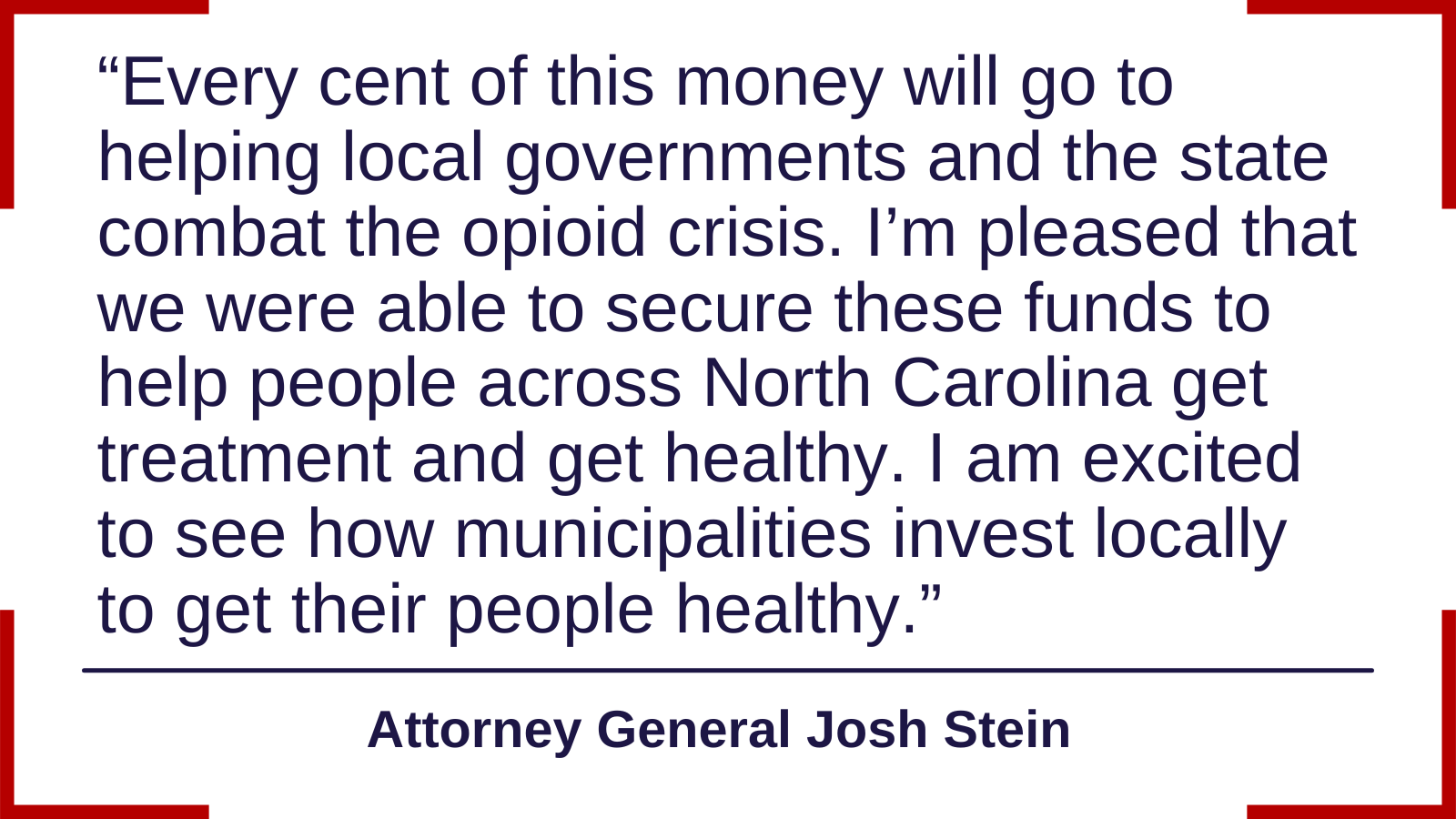
For Immediate Release:
Thursday, April 18, 2024
Contact:
Nazneen Ahmed (919) 716-0060
(RALEIGH) Attorney General Josh Stein announced that as of this week, North Carolina has received $220,244,633 this fiscal year (July 1, 2023, to June 30, 2024) from settlements his office won against companies that helped create and fuel the opioid crisis. Including past fiscal years, North Carolina state and local governments have received $335,831,860 in all.
“Every cent of this money will go to helping local governments and the state combat the opioid crisis,” said Attorney General Josh Stein. “I’m pleased that we were able to secure these funds to help people across North Carolina get treatment and get healthy. I am excited to see how municipalities invest locally to get their people healthy.”
Local governments will receive $176,787,053, and the state will receive $43,457,579 of this fiscal year’s payments to fund opioid-related programs.
North Carolinians can view how their local governments plan to spend the funds coming to counties and municipalities to combat the opioid overdose crisis. The information is available on the Community Opioid Resources Engine for North Carolina (CORE-NC). Transparency and accountability are a hallmark of North Carolina’s approach to opioid settlement spending. CORE-NC includes payment schedules and information about the settlements as well as county-specific data and resources on high-impact strategies to help guide local spending. CORE-NC also serves as an information clearinghouse for reports on the use of opioid settlement funds for the duration of the 18-year settlements.
North Carolina received an award for excellence from a public health coalition led by the Johns Hopkins Bloomberg School of Public Health for devoting almost all of these settlement funds to addressing the opioid epidemic and for creating CORE-NC to share information and promote evidence-based solutions.
###
